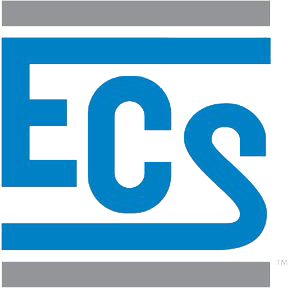Q: Tell us a little about your professional background and experience.
A: Over my 15 year career, my background has primarily specialized in environmental site investigations and remediation. From industrial hygiene and environmental compliance including stormwater compliance to construction services are a few of the hats I’ve worn throughout my career.
ECS gave me a great opportunity a little over 3 years ago and I now manage the Environmental Department in our Pittsburgh office.
Q: How long have you worked at ECS?
A: I’ve been with ECS for three years with a total of 15 years in consulting.
Q: What is a SWPPP inspection and why is it important?
A: SWPPP stands for Stormwater Pollution Prevention Plan. They are required under the National Pollutant Discharge Elimination System (NPDES) for facilities or sites that may discharge pollutants to the Waters of the U.S. The SWPPP details erosion and sediment controls, stormwater controls, and pollution prevention practices for non-stormwater discharges. Inspections are important to ensure the SWPPP is properly implemented, and pollutants are properly captured onsite.
Q: What kinds of projects does ECS typically provide SWPPP inspections for?
A: We work primarily on commercial and industrial projects, making sure pollutants produced during construction of new or renovation facilities are properly controlled and do not enter waterways.
Q: What projects in Pennsylvania require SWPPP inspections and permitting?
A: Typically, any land disturbing activity in the state of Pennsylvania greater than or equal to one acre requires a NPDES permit, whether it is a General Permit or Individual Permit. The permit will dictate the inspection frequency, which typically include routine weekly inspections; post-stormwater event inspections within 24 hours of greater than 0.25 inches of precipitation or significant snowmelt; and corrective action inspections when deficiencies are observed.
Q: What kinds of clients need SWPPP inspectors?
We work with general contractors, developers, and civil engineering firms to assist with inspections on their projects. However, not just anyone can perform stormwater inspections. Pennsylvania requires inspection be performed by a Qualified Person, which is defined as a person knowledgeable in the principles and practices of erosion and sediment controls. ECS inspectors meet this definition or have obtained training as Certified Stormwater Inspectors.
Q: When you work with a contractor on a project what are some of the typical challenges you help them overcome?
A: When working on small portions of an overall larger property, contractors can lose track of their limit of disturbance or permitted areas. This could potentially lead to land disturbing activities outside of controlled areas increasing the potential for pollutants to migrate offsite. ECS works with contractors to stay informed of their construction schedules and identify activities that may extend beyond the permitted limit of disturbance. In these situations, ECS’s expertise can suggest alternate options or if necessary, update the NPDES permit to extend the limit of disturbance and ensure the right controls are in place to capture onsite pollutants.
Q: Tell us a little bit about some of the recent projects you have worked on.
A: ECS has been working with a national client on expansion at a few national cemeteries. These have typically involved large scale land disturbing activities where stormwater management is critical. ECS has been involved since the beginning ensuring our client stays compliant with the requirements of permitting. Not to mention, ECS has provided multiple service lines on these projects, which have been a huge benefit to the client.
Q: What is your favorite thing about living and working in Pittsburgh?
A: One thing I like about Pittsburgh is its diversity. Whether I am hiking one of the many beautiful state parks in the area or investigating the rich history of a downtown property, there is so much to experience.

